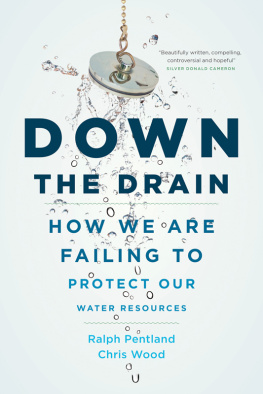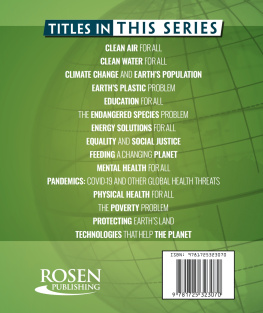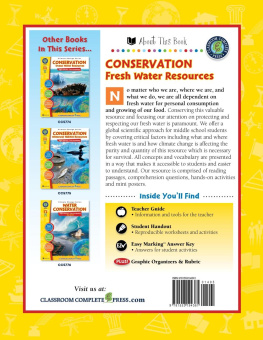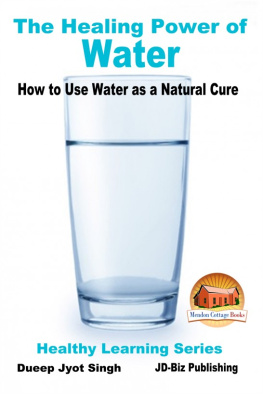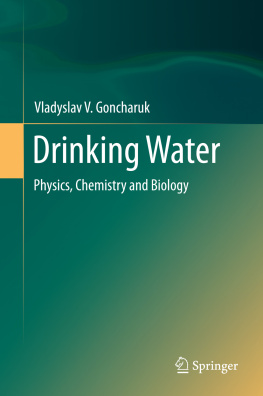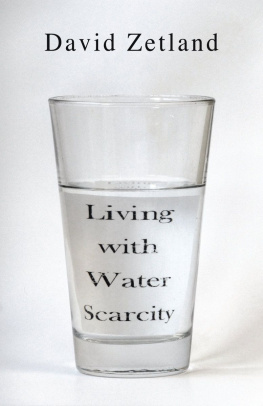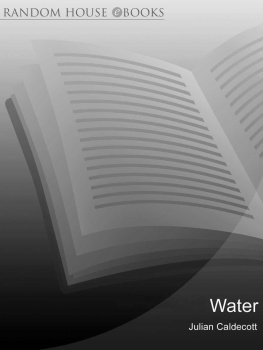ONE
The Last Water in the World
COVERING 31,000 square kilometres, Great Bear Lake is either the seventh- or eighth-largest lake on Earth, depending on whether you consider Lakes Huron and Michigan to be separate lakes or, as hydrologists do, one. It is bigger than any of Lakes Ontario, Erie, or Winnipeg and is unquestionably the largest freshwater body entirely within Canadas borders. Yet few Canadians are aware that on Great Bears 2,719-kilometre coast there exists only one permanent human settlement. Even fewer are likely to know the story of that settlements unusual prophecy.
The community of Dline sits far down on Great Bear Lakes wide southwestern arm. The Slavey word means where the water goes outa reference to the wide-flowing nearby river that empties the lake and shares its name. Dline used to be called Fort Franklin, after British explorer Sir John Franklin. During one of his earlier and less disastrous expeditions, the ill-fated leader and his men spent the winter of 182324 here.
A far more honoured memory in this small settlement is that of a humble trapper. Early in the twentieth century, Dene elder Louis Ayah earned a reputation for unusual insight. He is reputed to have forecast many of the events of the middle and late decades of the century, from world wars and satellites to the discovery of diamonds in the Northwest Territories. He is venerated today beyond the Sahtu Dene. An annual gathering draws people from First Nations across the North to celebrate Ayahs spirit in a replica of his cabin. But for the Sahtu, his prophecies held a particular and specific warning. As Morris Neyelle, Dlines unofficial community historian, tells it, Ayah foresaw that one day the people of the rest of the world will run out of water, and when they do they will all come here to Great Bear, because this will be the last pure water left on earth.
Three-quarters of a century after Ayahs death in 1940, the last part of his prophecy is well on its way to coming true. Great Bear Lake is the last unpolluted water body of its size remaining in the Western Hemisphere. With Lake Baikal, it is one of the last large pools of pristine fresh water left on the planet (and paper mill effluent now threatens Baikals purity). Beyond that, Dline and its prophecy are portraits in miniature of the beliefs almost all Canadians hold about ourselves, our water, and the wider world.
Canada, most of us are raised to believe, has an abundance of clean water. We cite with pride our possession of a fifth of the worlds liquid fresh water, though only a third of that is renewed by rain and snowfall. Other countries are running out of water, and many of us believe that they will eventually want ours. We routinely tell opinion researchers that water is the nations most important natural resource, an irreplaceable treasure more valuable than all the oil, gas, gold, and diamonds our geography also yields.
We like to see ourselves as outdoorsy people by nature, proud to stand on guard for our landscape of iconic lakesif only by demanding that Parliament pre-emptively declare our refusal to ever, ever, share our water with anyone else.
Many Canadians who do not know Dlines name imagine themselves in its moral image: outnumbered but doughty defenders of a liquid treasure. Our daily reality is much closer to the nightmare first part of Louis Ayahs vision. We waste more water than anyone else on Earth, with the possible exception of citizens of the United States. We are more careless than even they with the purity of our lakes and streams. Expanding cities, retreating ecosystems, and a changing climate give southern Canada, where most of us live, far more in common with the increasingly parched and poisoned landscapes of Ayahs bleak vision than with the living web of lakes, forest, rock, and wetland that cradles the crystalline vastness of Great Bear Lake.
Our beliefs about water are riddled with mythology, error, ignorance, smugness, and complacency. Self-delusion is no mere moral failing, however. It is frequently lethal. A few decades after Franklins winter on Great Bear, Inuit witnesses would later report, the starving remnants of his doomed last crew stumbled past them through the snow, even in extremis disdaining to seek the help of savages.
Yet the ascetic prophet and untouched lake at Dline offer more than just a salutary rebuke to dangerous hypocrisies. The tiny Dene community and the barely more substantial northern territorial population of which it is a part embody a fundamental challenge to the idea of dominionwhether of man over nature or, to use a now archaic term, the political Dominion of Canada. They seek to restore a candour about humanitys dependence upon Earths natural ecosystems, our habitat, that must be grasped by all of us if we are to understand the foundation of wealth in the coming century
Water is implicated in everything human beings do. Without it, no food is grown, no energy captured, no goods made, no activity performed. Without water to drink, you will die within seventy-two hours. For these reasons, in every faith water is equated with life itself.
A reciprocal but underappreciated fact is that everything that humans do in our commercial economy, all our military stratagems, our art, recreation, and culture, right down to our most mundane and intimate domestic moments, has an effect on our water.
Water really is everything. In this book, however, we will focus on one question: Can Canadians be confident that our water is safe today and secure for the future?
Answering that question requires us to look further than the kitchen tap.
Many writers have examined the future of waters quantity. We will focus equally on waters quality. Is it clean? Is it healthy? And what do we mean by those terms? As well discover, quantity and quality cannot be entirely disentangled in discussing water.
Confidence, former U.S. president Ronald Reagan once remarked, is an amalgam of trust and verification. Much of this book deals with how these apply to Canadas natural security. Many Canadians, especially those returning from a trip to a country like Mexico, might say their confidence in our public water supply is justified. Well see whether the arrangements to verify that safety in fact deserve Canadians trust.
Since antiquity, water has been considered a shared public asset. In Canada today, statute, common law, and popular thinking still hold this to be true of water in the wild. As one result, the number of provincial and federal agencies whose decisions may affect any given body of water quickly runs into double digits. In most of Canada, moreover, both the oversight and functional operation of municipal water supply and waste water systems are in the public sector and under direct political management.
For all of these reasons, we need to consider how we make decisions about such public assets: the place and role of public agencies, the applicable laws and habitual practices that determine the security of any particular water body. We will ask, that is, whether the social and legal infrastructure Canadians have built to defend our water is effective. And if not, what needs to change.
Water is also mobile. The water splashed about the map of Canada is not as much ours as we like to think. Our land receives it and sends it on. Hence we cannot think usefully about water on Canadian soil without thinking about our relationships with othersour partners in trade, economic rivals, and hemispheric peers. The experiences of the United States and Europe provide illuminating perspectives on Canadas water security.

